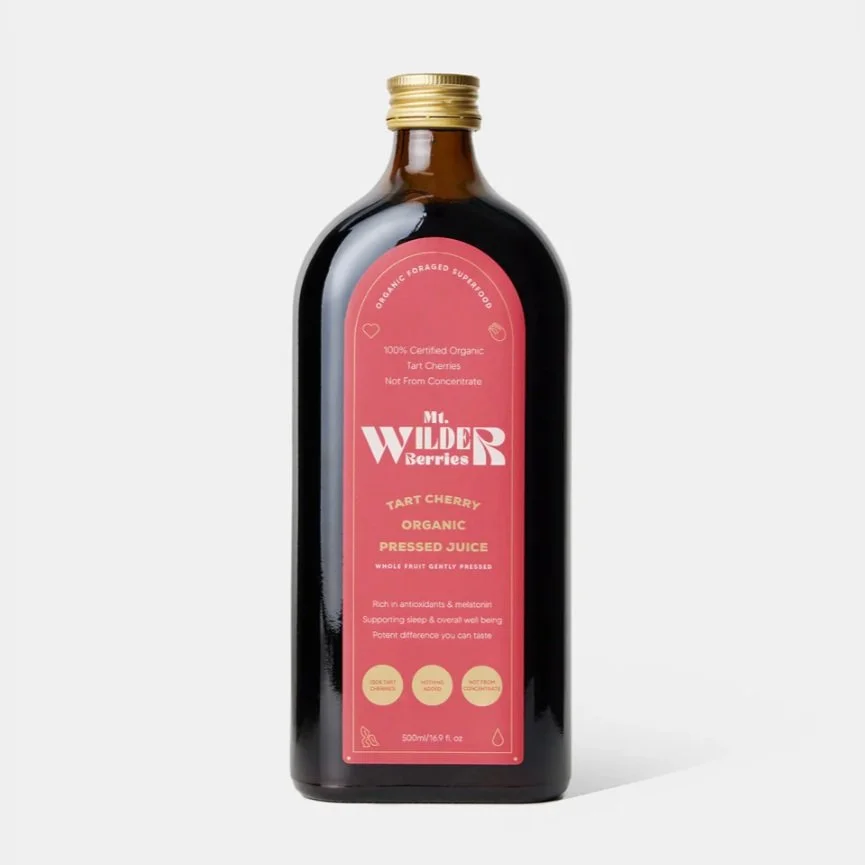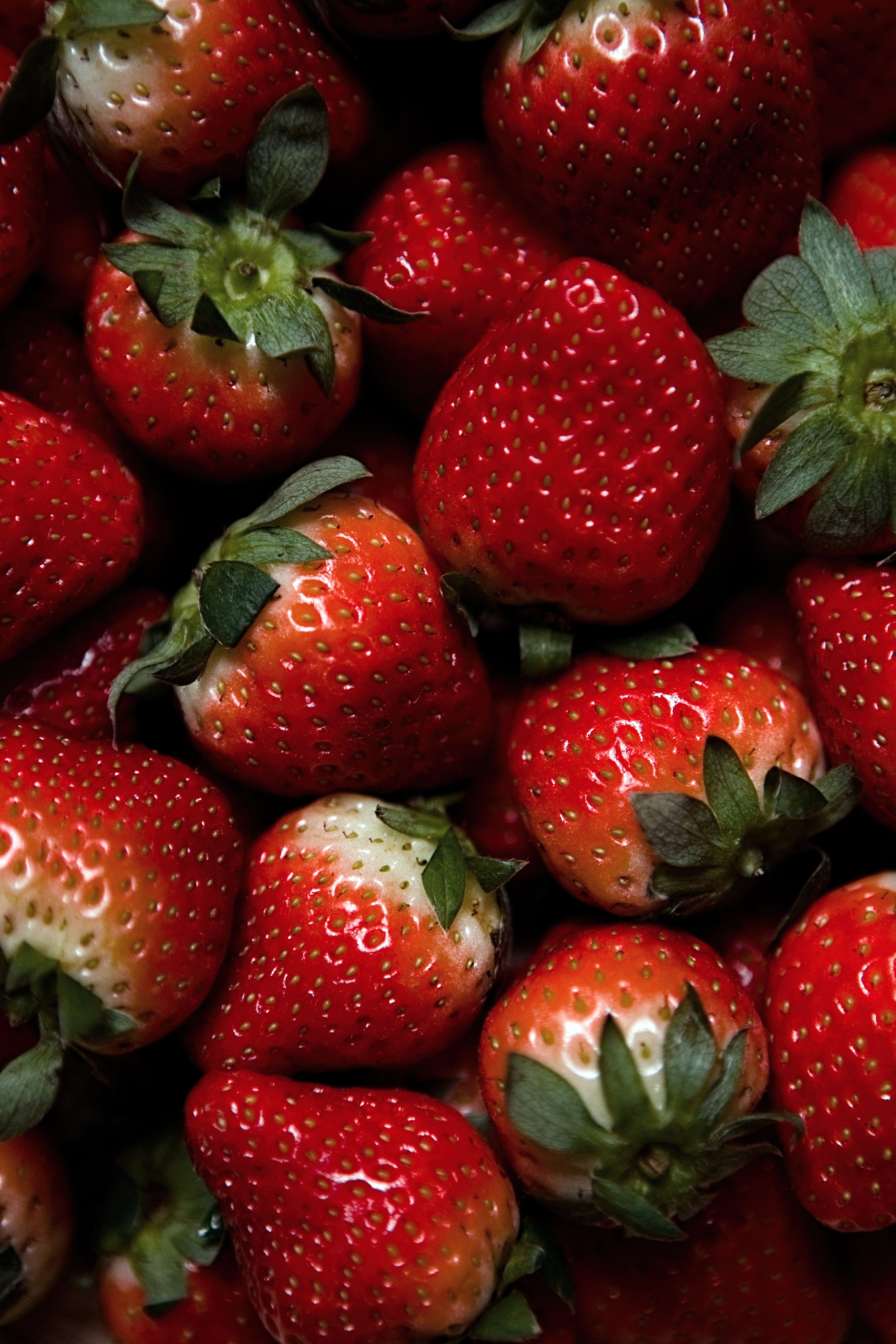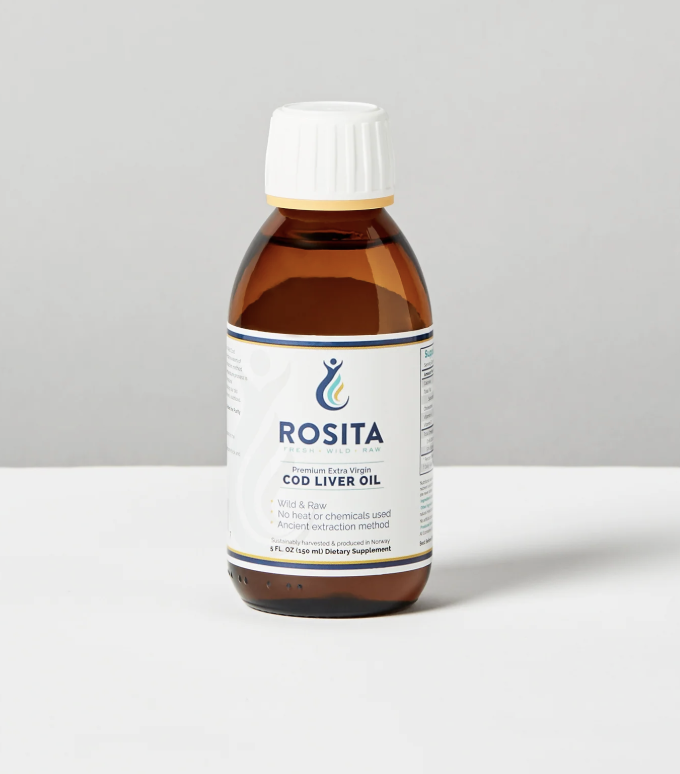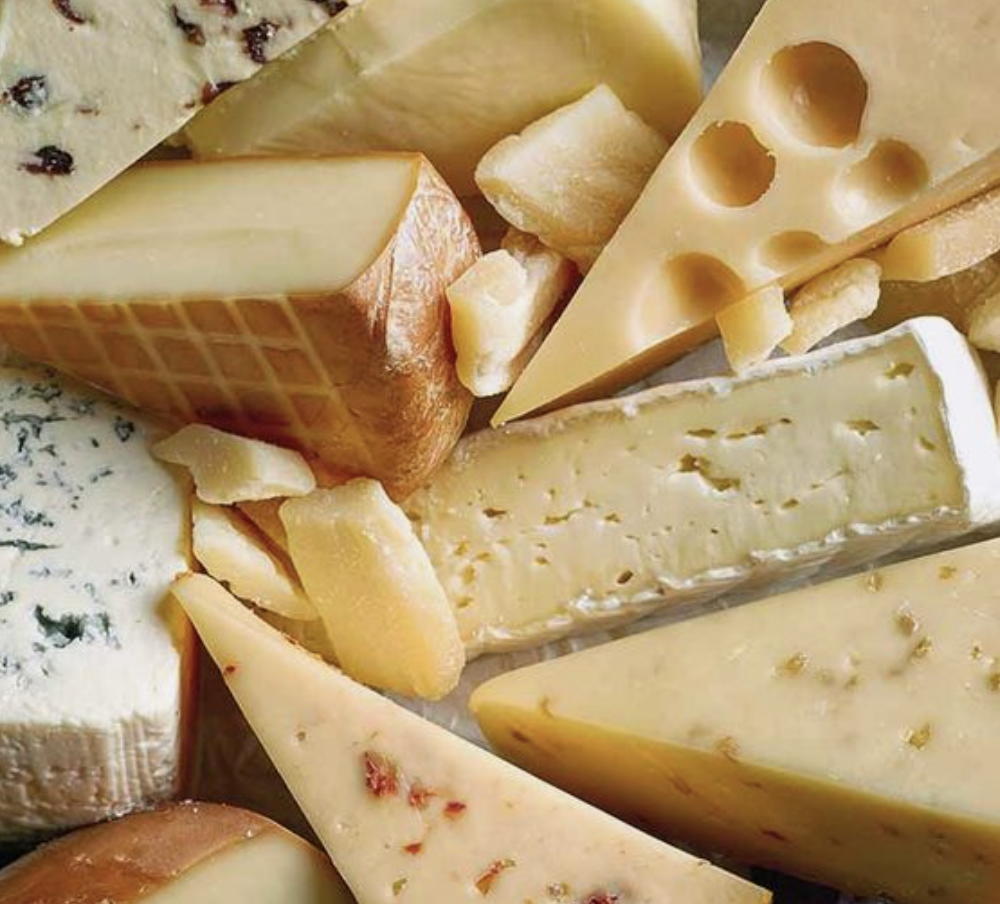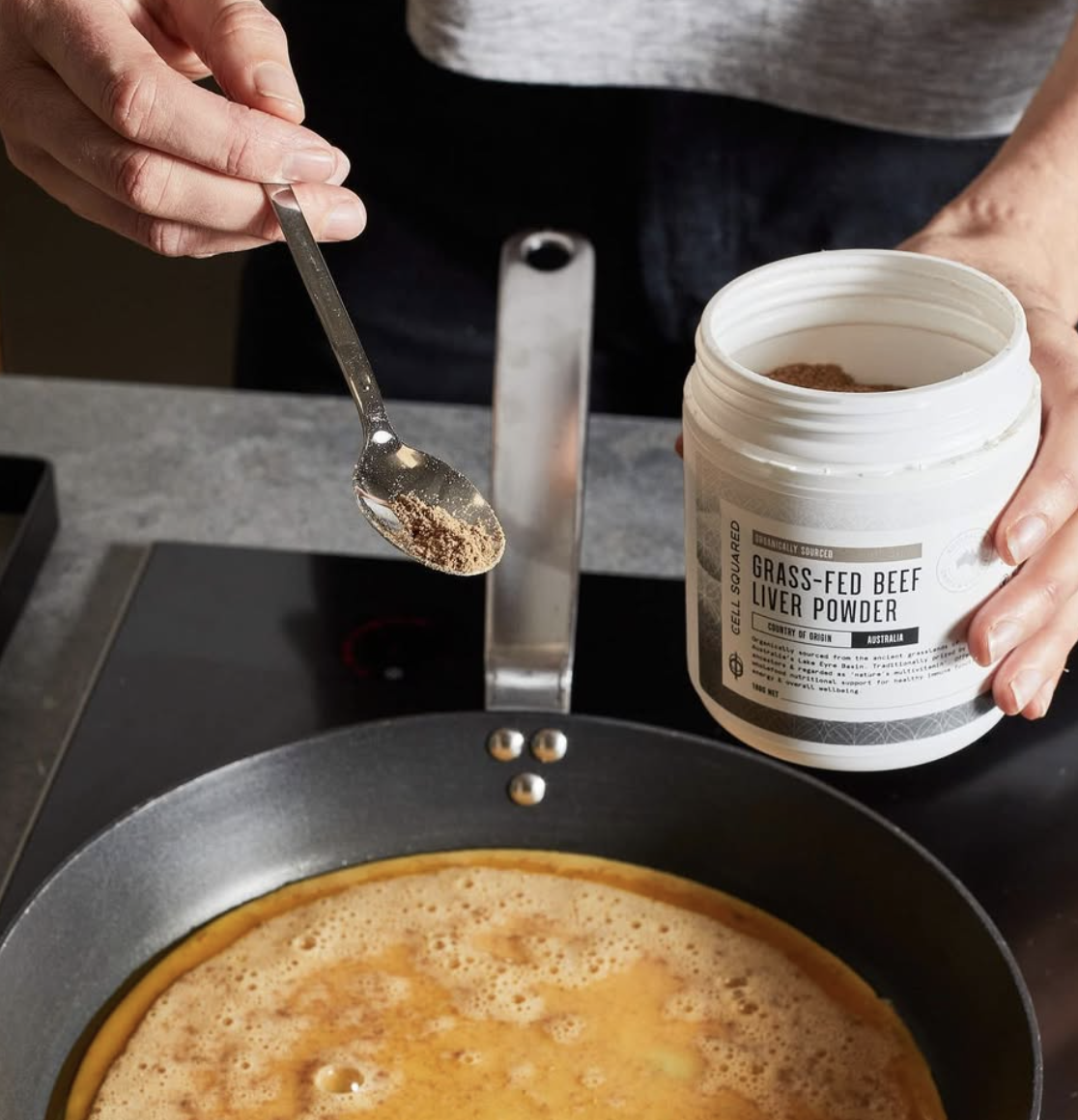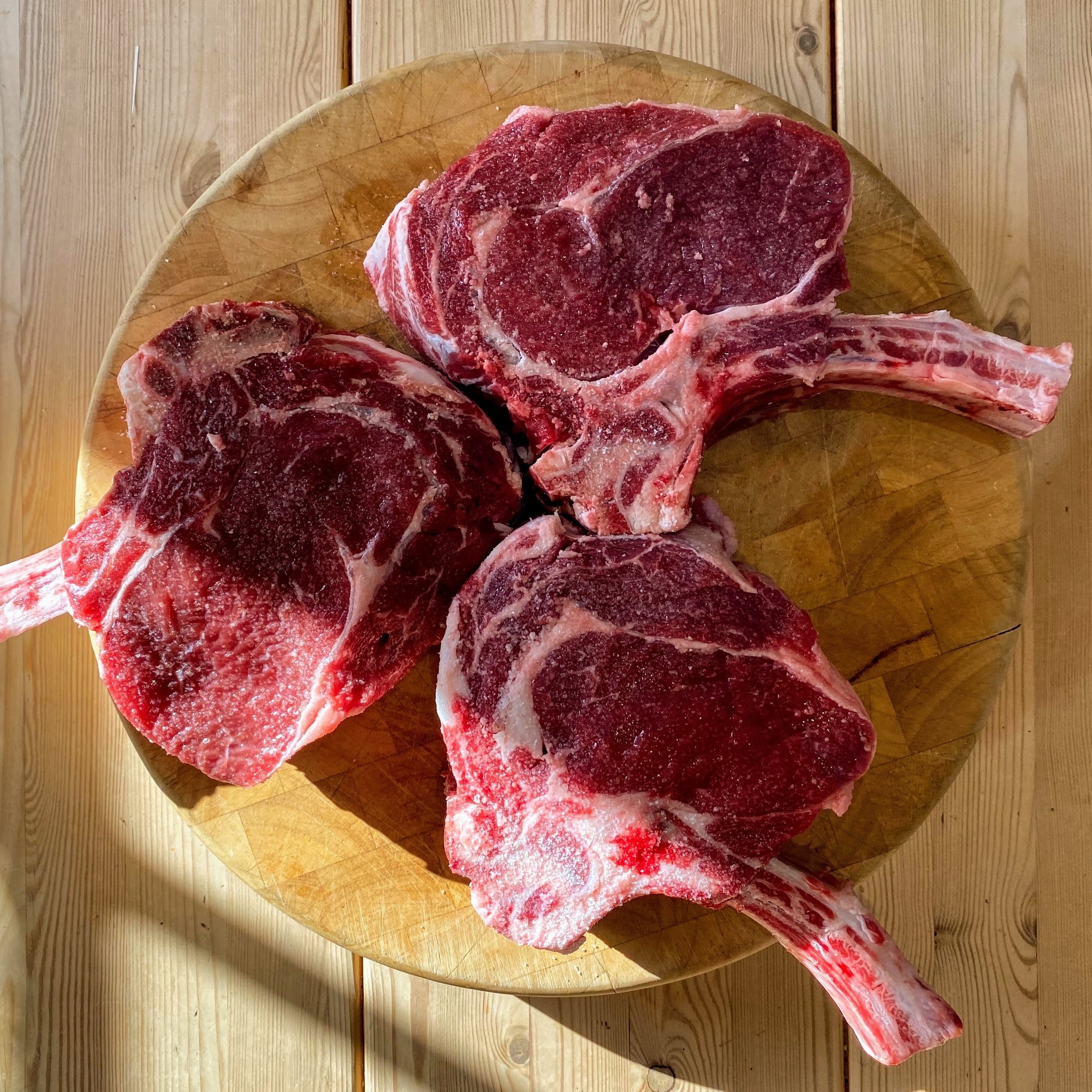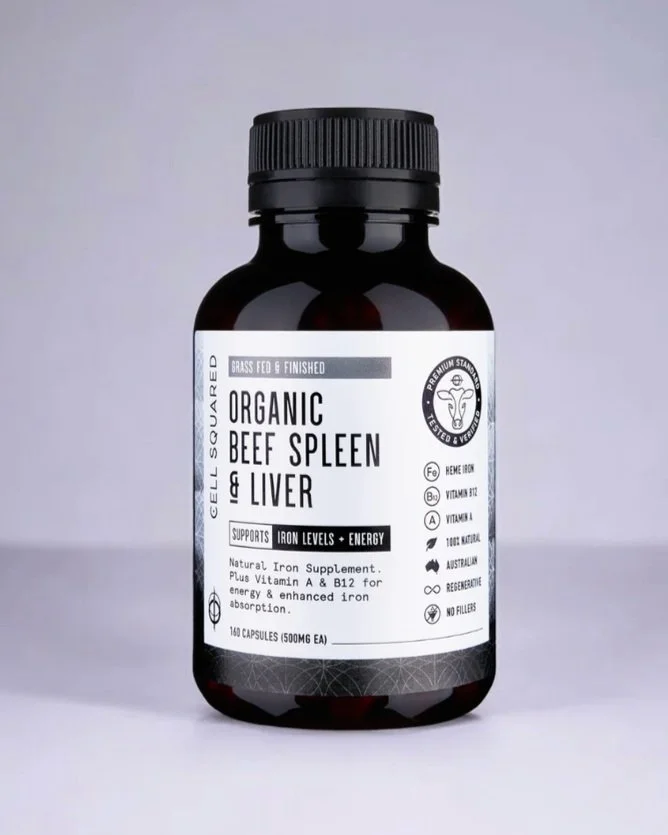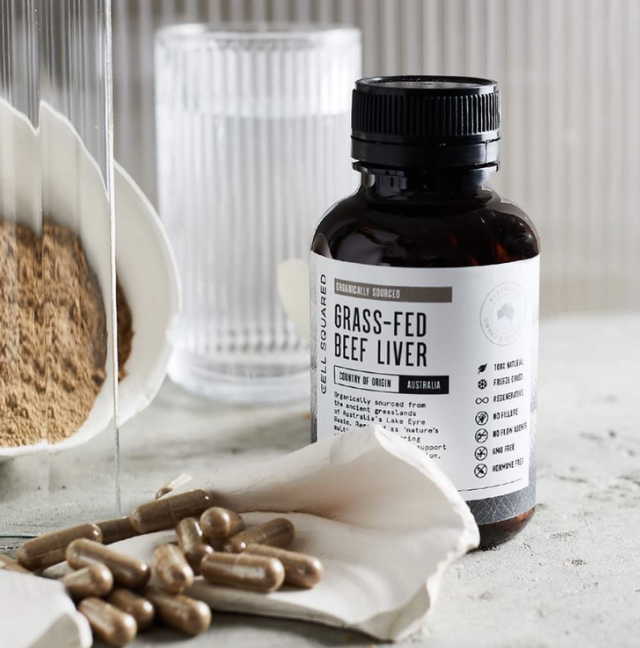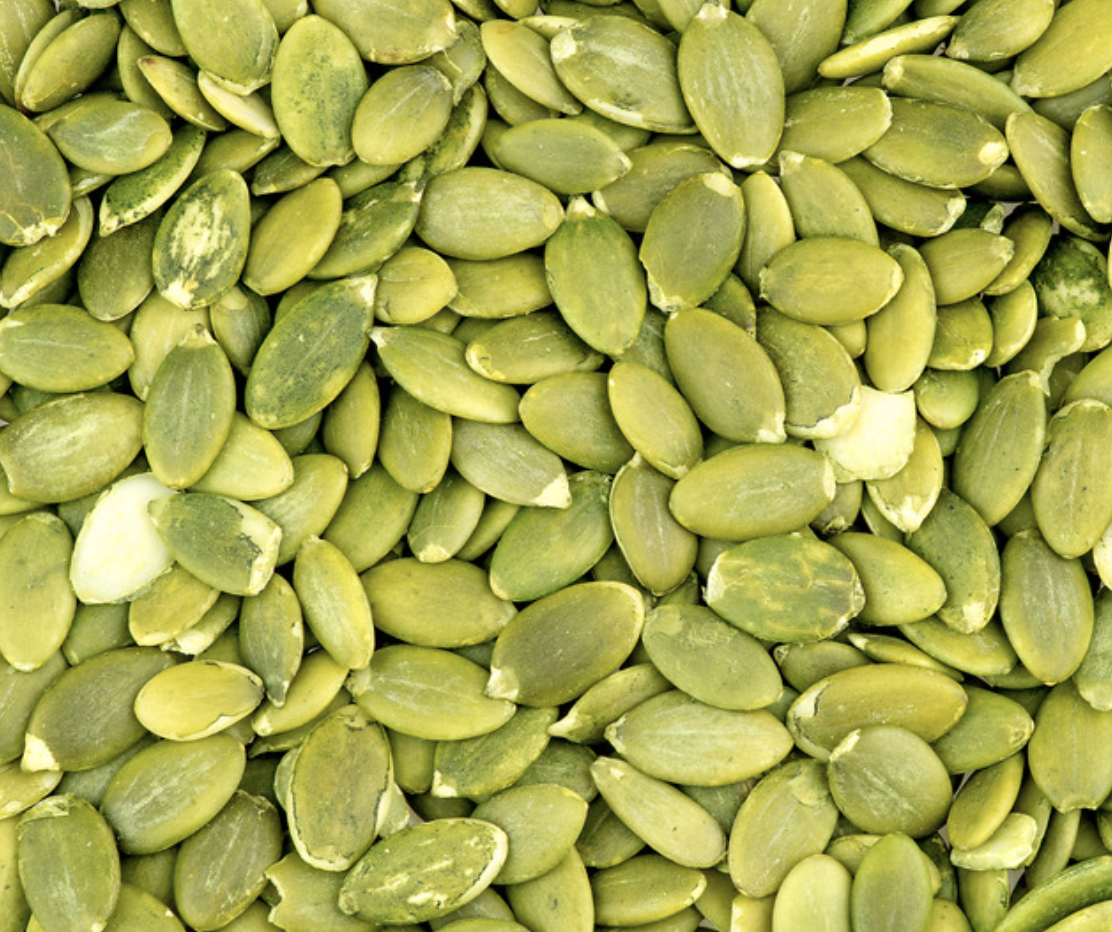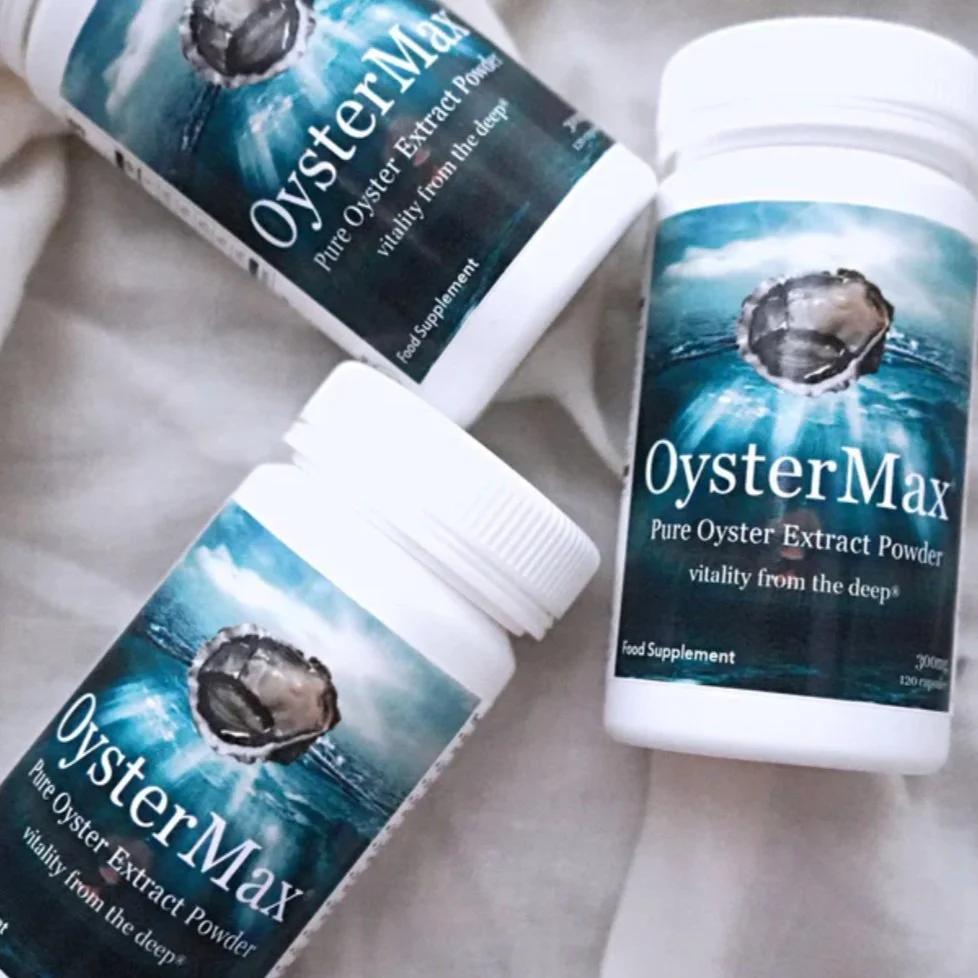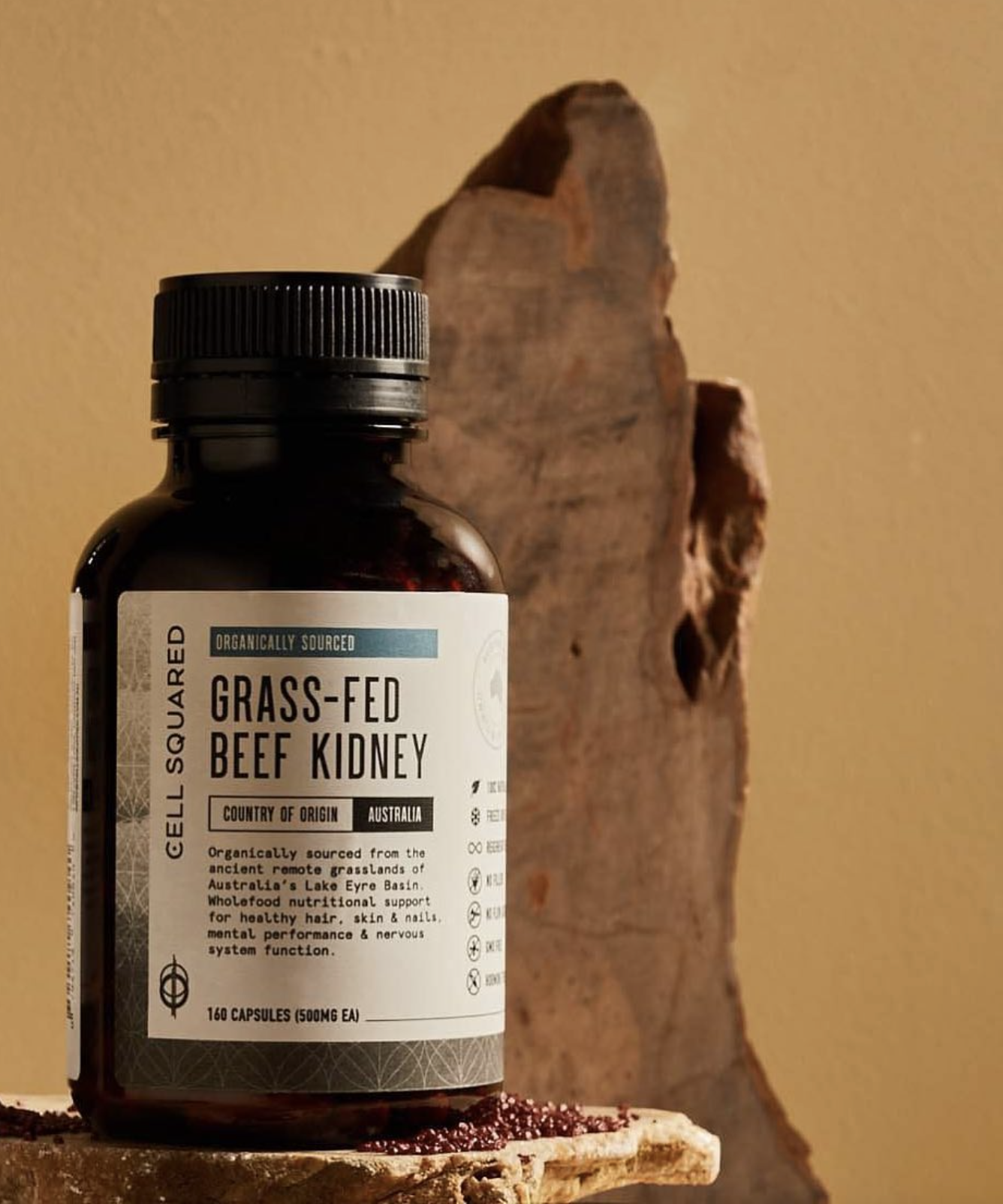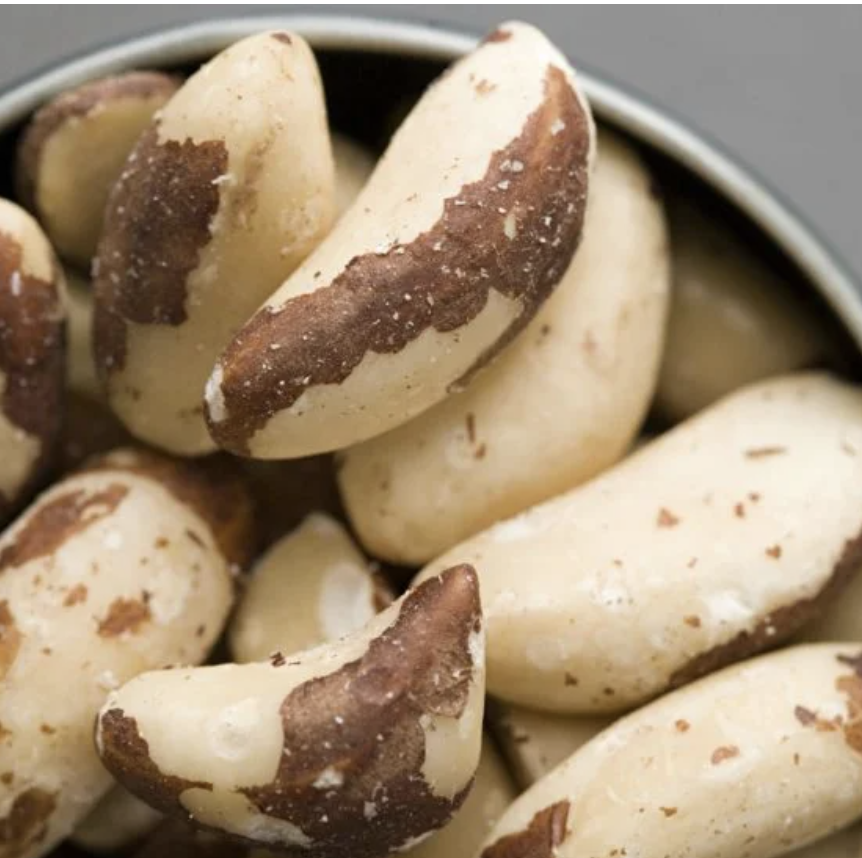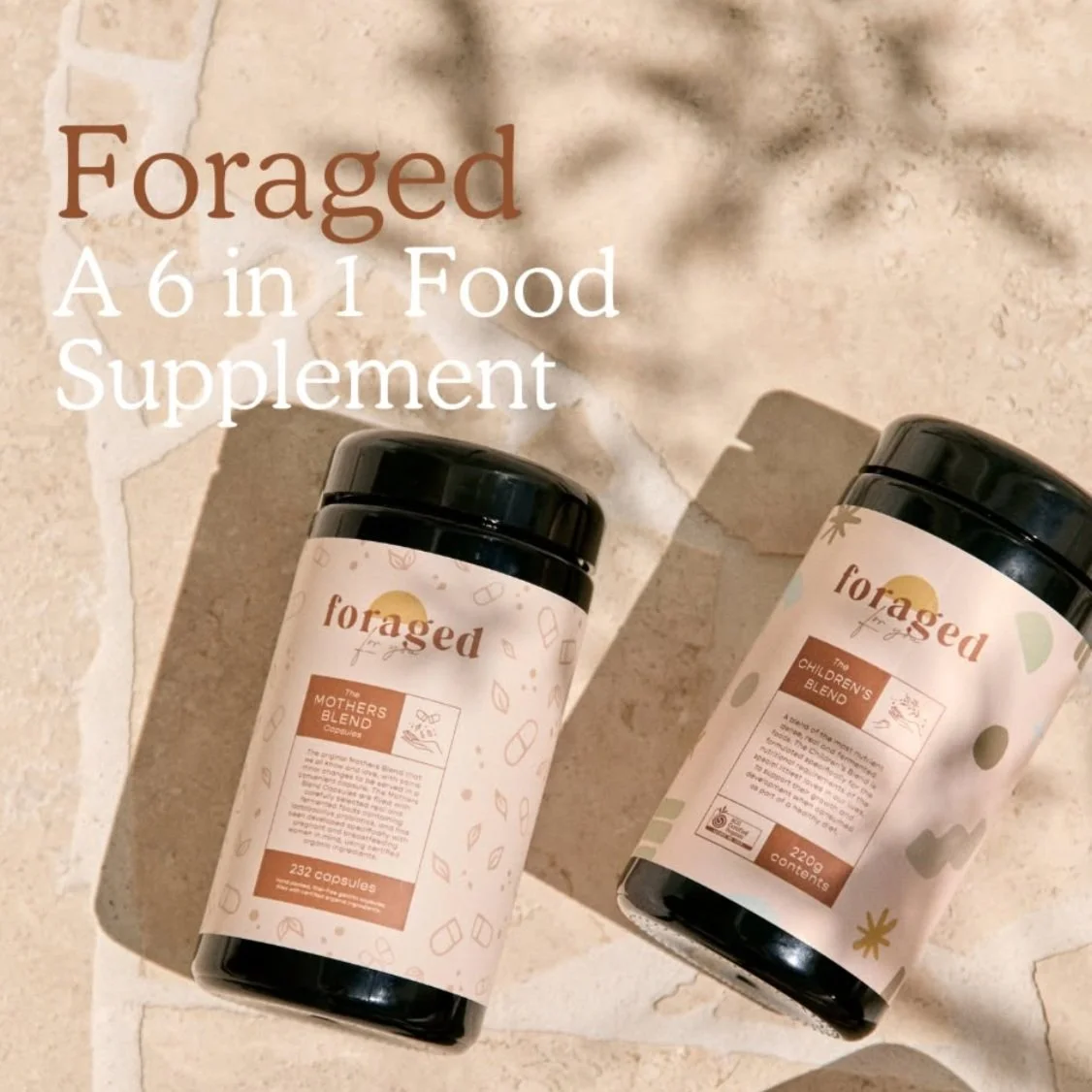Now that winter is well and truly here, it’s the perfect time to give our immune system a little extra love. Our bodies need the right fuel to keep things running smoothly, especially when we’re up against the usual winter bugs and sniffles. A few key nutrients can make all the difference in staying strong and feeling well through the colder months.
Our immune system thrives on essential vitamins and minerals, not just for preventing infections but also for supporting recovery and repair. Think of Vitamins A, C, D, E, B2, B6 and B12, along with folate, iron, selenium and zinc, as an all-star team working behind the scenes to keep you feeling your best.
The good news? You don’t need to rely on synthetic supplements to get these immune-boosting nutrients – they’re all found in real, whole foods! I always turn to food first to get the vitamins and minerals my body needs, and when I need a little extra support, I reach for food-based supplements to fill in the gaps.
So how do you make sure you're getting enough of these key nutrients? I’ve always believed that real food is the foundation of good health, but let’s be honest, not everyone gets excited about the most nutrient-dense options (I see you, liver and sardines!). In this blog post, I’ll break down how each of these micronutrients supports your immune system and, most importantly, how to get them into your diet – without feeling like you’re forcing it!
Vitamin A
Vitamin A is a powerhouse when it comes to supporting your immune system. It helps strengthen your body's first line of defence – your protective barriers, like the respiratory and gut linings, making it harder for harmful pathogens to get in. Vitamin A also plays a key role in producing and activating immune cells, helping your body mount a quick and effective response when needed. Plus, it supports antibody production, keeps your immune system balanced, and even has anti-inflammatory properties to help keep things running smoothly. Getting enough of this essential nutrient is a game-changer for immune health.
Here are some of the best real food sources to keep your levels up!
Liver and other organ meats
Butter and ghee (grass-fed / organic sources will have more)
Cream
Egg yolks
Goat’s cheese
Real Food Supplements
Cod Liver Oil – I buy this through Part&Parcel. Use “jordiepieface” for $20 off your first order with them ($99 min order).
Organic Liver Capsules - use JORDIE10 for 10% OFF
Tart Cherry Juice – I buy this through Part&Parcel. Use “jordiepieface” for $20 off your first order with them ($99 min order).
Vitamin C
Vitamin C plays a vital role in boosting immune function by supporting various cellular mechanisms. For example, it promotes the production and operation of critical immune cells, such as neutrophils and lymphocytes, enabling them to combat infections more effectively. Vitamin C also stimulates antibody production, strengthening our immune system's ability to identify and neutralise pathogens. Additionally, it exhibits anti-inflammatory properties in times of illness, promoting a balanced immune response and minimising tissue damage.
Citrus fruits like oranges, lemons and grapefruits are renowned for their vitamin C content. Other options include:
Acerola Cherry – 1 cup ≈ 1,700mg
Amla Berry Powder – 1 tsp ≈ 650mg
Camu Camu Powder – 1 tsp ≈ 600mg
Guava – 1 cup = 377mg
Swiss Chard – 1 cup ≈ 300mg
Blackcurrants – 1 cup = 200mg
Mustard Spinach – 1 cup = 195mg
Red Capsicum – 1 cup = 117mg
Strawberries – 1 cup = 97mg
Papaya – 1 small fruit = 95mg
Broccoli – 1 cup = 81mg
Parsley – 1 cup = 80mg
Pineapple – 1 cup = 79mg
Brussels Sprouts – 1 cup = 75mg
Potato – 1 large = 72mg
Orange – 1 medium = 70mg
Kiwi Fruit – 1 fruit = 64mg
Elderberry Juice – I buy this through Part&Parcel. Use “jordiepieface” for $20 off your first order with them ($99 min order).
Real Food Supplements
I love these Organic Camu Camu Capsules or this Powder. Camu Camu is one of the most potent natural sources of Vitamin C. To put it in perspective, oranges have about 50mg per 100g, while Camu Camu packs a massive 10,000mg per 100g! You can get it in powder form to mix into smoothies, citrusy slices or desserts, but I personally prefer the convenience of capsules. These ones are completely additive- and filler-free, with a 100% gelatin capsule casing.
You could also try this – Liquid Whole C Herbal Tonic from Yandina Apotheca. It’s a beautiful immune tonic and contains a mixture of herbal extracts of rosehip, elderberry elderflower, licorice root, astragalus and echinacea root.
You can buy both of these from Jivita, and if you’re keen to try them, you can use "jordiepieface" for $15 off your first order (min. spend $130)!
Vitamin D
Vitamin D, often called the "sunshine vitamin," plays a powerful role in keeping our immune system strong. It helps regulate both innate and adaptive immunity, making our body more effective at fighting infections. It also supports key immune cells – T cells, B cells and macrophages which work together to identify and eliminate pathogens. On top of that, Vitamin D boosts the production of antimicrobial peptides – natural substances that help defend against harmful microorganisms and strengthen our immune barriers. But that’s not all! Vitamin D has anti-inflammatory properties, helping to regulate the immune response and prevent excessive inflammation. This balance is crucial for keeping our immune system in check and reducing the risk of chronic inflammation that could impact overall health.
Since our main source of Vitamin D is sunlight, it can be harder to get enough during the winter months, making it even more important to be mindful of your intake! Thankfully, you can access it through whole foods like:
All four Salmon, Mackerel, Tuna, and Sardines are excellent natural sources of vitamin D, especially when they’re wild-caught and fatty (rather than lean or farmed) – I buy these tinned fish through Jivita. You can use “jordiepieface” for $15 off your first order ($130 min order).
Real Food Supplement Sources
Cod Liver Oil – My go-to cod liver oil brand is Rosita, and for good reason! They’re the only company in the world with a patented, truly gentle, heat-free and chemical-free purification process. No harsh treatments, no synthetic additives, just pure, nutrient-rich cod liver oil. What you get is exactly as nature intended! You can use “jordiepieface” for $20 off when buying through Part&Parcel ($99 min order).
B Vitamins
B vitamins (B2, B6, B12, and folate) are essential for a strong immune system. They help produce and regulate white blood cells, equipping them to fight infections effectively. But their role doesn’t stop there! B vitamins are also crucial for the production and maintenance of DNA and RNA, the genetic material that keeps our cells functioning properly. This is especially important for immune cells, as it allows them to carry out their defense and surveillance duties. On top of that, B vitamins support energy production, providing the fuel immune cells need to perform at their best. Without enough of these vitamins, our immune system can struggle to keep up!
Some of the best Real Food Sources of B Vitamins are:
Liver and other organ meats
Shellfish (clams, mussels, oysters)
Seafood, like octopus, fish eggs, lobster and crab
Moderate sources include grass-fed beef, lamb, cheese and eggs
Real Food Supplements
Cell Squared’s Organic Liver Powder or their Organic Organs Powder is packed with essential nutrients and gives you the ultimate flexibility to incorporate it into your meals. You can add it to cooking. It’s easy to pop a spoon into curries, slow-cooked lamb shanks + gravy, frittata, easy GF zucchini slice, savoury muffins, beef stew and more!
You can use my code “JORDIE10” for 10% off everything when shopping with Cell Squared.
Iron
Iron is a powerhouse nutrient when it comes to immunity. It’s a key component of hemoglobin, the protein in red blood cells that carries oxygen throughout the body. And since our immune cells rely on oxygen to function at their best, getting enough iron is essential for keeping our defences strong. But that’s not all—iron also plays a vital role in activating and supporting immune cells. It helps T cells, B cells and natural killer cells mature and function effectively, making them better at recognising and eliminating harmful invaders. Plus, iron is involved in antibody production, helping to target and neutralise pathogens before they can take hold.
Heme Iron (Animal) Food Sources
Grass-fed red meats
Turkey
Organ meats
Sardines and shellfish (clams, mussels, oysters)
Non-Heme Iron (Plant Based) Food Sources
Spinach
Pumpkin seeds – Use “jordiepieface” for $20 off your first order through Part&Parcel ($99 min order).
Blackstrap molasses
Dark chocolate – You can try these 100% Pure Organic Cacao Melts for baking; they’re completely additive-free, sugar-free, and dairy-free. You can use “jordiepieface” for $15 off your first order through Jivita ($130 min order).
Real Food Supplement Sources
Cell Squared’s Spleen & Liver Capsules – When it comes to iron, heme iron (the kind found in animal sources) is the easiest for your body to absorb and use. That’s exactly why I love them, they’re a total game-changer! By combining spleen and liver, two of the richest sources of heme iron, they maximise absorption and give your body exactly what it needs. Each recommended dose (4-6 capsules) delivers 9.4 mg of heme iron – that’s 78% of your daily intake in its most bioavailable form. More iron, better absorption, and stronger support for your energy, immune system, and overall wellbeing, so you can keep thriving!
Cell Squared’s Organic Beef Liver Capsules – Whenever I feel like I need a natural energy boost, I take either these liver capsules or the spleen & liver capsules. Liver is an absolute nutrient powerhouse, packed with iron, B vitamins, and more. But I know it’s not everyone’s cup of tea (trust me, I get it!). The good news? You don’t have to cook or eat liver to reap the benefits. If handling and eating liver isn’t your thing, freeze-dried beef liver capsules are the way to go. These capsules make it super easy to get all the micronutrients without the strong taste!
Cell Squared’s Organic Beef Organs Powder - While it doesn’t contain quite as much iron as their liver & spleen capsules, it actually delivers more iron than pure liver on its own. Each 1 tsp serve provides 3.5mg of iron, which is around 28% of your recommended daily intake.
You can use my code “JORDIE10” for 10% off everything at Cell Squared! And yes, it even stacks with their already discounted 3-month spleen bundle, meaning you get a total of 20% OFF! (Excludes 6-month bundle packs that already have a 20% discount.)
Zinc
Zinc is a key player in keeping your immune system strong. It helps activate and mature immune cells, making them ready to tackle infections. Zinc also plays a role in producing antibodies, which are essential for recognising and fighting off harmful invaders. Zinc has anti-inflammatory properties, helping your body maintain a balanced immune response and prevent overactive inflammation. Plus, it supports the health of your skin and mucous membranes, acting as natural barriers to keep germs at bay. Without enough zinc, your immune system can struggle to function properly, so it’s important to include zinc-rich foods in your diet to keep everything running smoothly!
Real Food Sources
Oysters
And other shellfish, such as mussels and crab
Red meats
Liver
Poultry
Pumpkin seeds – Use “jordiepieface” for $20 off your first order through Part&Parcel ($99 min order).
Real Food Supplement Sources
100% Pure Oyster Capsules – These little capsules pack a serious punch! Each bottle of oyster extract capsules contains the concentrated goodness of around 6 kg of fresh oysters. Not only are they a powerhouse of zinc, but they also deliver 59 trace elements, 12 vitamins, 19 amino acids (including taurine) and essential fish oils like EPA and DHA. A true nutrient goldmine! I love having these on hand for a natural zinc boost, especially when fresh oysters aren’t an option. They're an easy, convenient way to support immune resilience and overall wellness (especially for men).
You can use “jordiepieface” for $15 off your first order with Jivita ($130 min order).
Selenium
Selenium is a key nutrient for a healthy immune system. It supports antioxidant enzyme activity, helping protect immune cells from oxidative damage that can occur during infections or inflammation. Selenium also plays a vital role in regulating inflammation, keeping it in check so your immune system can respond without overreacting. Plus, it helps with the production and activation of immune cells, ensuring your body is ready to fight off infections effectively. Getting enough selenium is essential, especially since it also plays a role in maintaining thyroid health, which is closely linked to immune function. Adding selenium-rich foods to your diet can give your immune system a powerful boost!
Real Food Sources
Brazil nuts
Seafood (oysters, tuna, sardines and prawns)
Eggs
Real Food Supplement Sources
Organic Beef Kidney Capsules – Use code “JORDIE10” for 10% off.
Looking For An All-Rounder?
If you’re looking for a simple way to get a blend of powerful nutrients without taking multiple supplements, I’d recommend trying Foraged For You Mothers Blend powder (they also offer capsules and a Children’s Blend). While it’s marketed for women who are TTC, pregnant or breastfeeding, both my partner (so yes, men can take this) and I love it as an all-rounder nutrient boost. It’s a 6-in-1 wholefoods powder with fermented foods, greens, liver, kelp, camu camu, beetroot juice and more – packed into one convenient spoonful (or capsule), saving you time and money! 🧡
To wrap up, nourishing your body with real, whole foods is one of the best ways to give your immune system the support it needs this winter. By focusing on nutrient-dense options like vitamins A, C, D, and B, along with essential minerals like zinc and selenium, you’re setting yourself up for a stronger defence against cold and flu season. Remember, hydration, adequate sleep, and managing stress are just as important too. While food-based supplements can help and are a great addition when needed, always prioritise real food first to keep your immune system thriving naturally!



